Serving Asian Self-Storage Markets: Talking With Extra Space Self Storage CEO Michael Hagbeck
Extra Space Self Storage of Asia opened its first self-storage facility in Singapore in 2007. The company now has five facilities in the region as well as stores in Malaysia and Korea. CEO Michael Hagbeck talks about the companys growth and future plans.
February 21, 2013
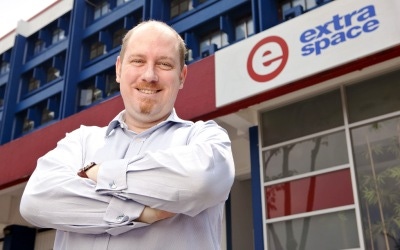
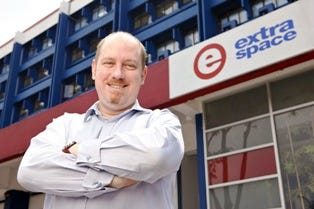 Extra Space Self Storage (not affiliated with the U.S. self-storage real estate investment trust Extra Space Inc.) opened its first self-storage facility in Singapore in 2007. Since then, it has expanded to include five facilities in Singapore, one in Kuala Lumpur, Malaysia, and another in Gangnam area, Korea. A member of the Self Storage Association of Australasia (SSAA) and the Singapore Business Federation, the company offers lifestyle and business storage solutions to consumers in the Asian markets where space is limited and the population density is high.
Extra Space Self Storage (not affiliated with the U.S. self-storage real estate investment trust Extra Space Inc.) opened its first self-storage facility in Singapore in 2007. Since then, it has expanded to include five facilities in Singapore, one in Kuala Lumpur, Malaysia, and another in Gangnam area, Korea. A member of the Self Storage Association of Australasia (SSAA) and the Singapore Business Federation, the company offers lifestyle and business storage solutions to consumers in the Asian markets where space is limited and the population density is high.
Extra Space is a joint venture between CEO Michael Hagbeck, Boustead Holdings and investors headed by Lazard Ltd. It is led by Hagbeck and chief financial officer Kenny Tham. Hagbeck recently talked to Inside Self-Storage about the companys explosive growth and plans for the future.
Tell us about Extra Space.
Weve grown 30 times in size since we started this business six years ago. The space we occupy has expanded from just 25,000 square feet in May 2007 to 750,000 square feet today. To put it more simply, weve grown in size from about half a football field to about 15 football fields.
Our customer base has also grown 120 times in five yearsfrom just 50 customers when we started in 2007 to more than 6,000 customers as of August 2012. Thats at least about a 20 percent faster growth rate than our nearest competitors. We currently have a total of 32 employees.
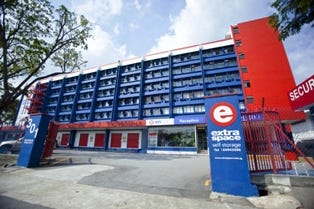 What factors are contributing to the growth of your market?
What factors are contributing to the growth of your market?

There is simply a great deal of latent demand for self-storage. Homes are getting smaller while incomes are getting larger. Singaporeans want their living spaces to reflect who they are but dont always have the space to accommodate all their acquisitions. At the same time, they have more interests, hobbies and collections including wine, which requires storage space. Extra Space simply allows them to de-clutter and make room for what they need when they need it.
As for businesses, space is at a premium, but they need to spend their resources on driving results, not on real estate. Startup businesses use our storage spaces, as they are good cost-saving and flexible alternatives to traditional warehouses. They can rent smaller areas, which match their inventory size. As they grow, their space can grow. We have flexible lease terms. With the minimum storage term at just two weeks, small businesses can also use us as short-term overflow space.
We know our product can make a tangible difference to peoples living and working spaces, but many didnt know about such options. So we put a lot of energy into educating people about self-storage. And demand grew naturally as people saw the benefits of self-storage.
What kind of marketing does Extra Space do?
The Web is a key source of queries, as are our TV ads when they air and signages. Word-of-mouth is also quite important in Singapore.
Whats on the horizon for your market and company?
The future looks bright for the industry as the trends in Asian urban lifestyles make self-storage a natural part of how people extend their space. Storage used to be associated with very practical needs such as 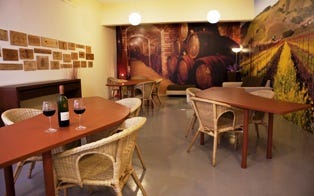 renovation or moving in between homes and, for businesses, storage of documents. But were seeing that change.
renovation or moving in between homes and, for businesses, storage of documents. But were seeing that change.
Consumers are storing more lifestyle items as homes become smaller and growing affluence lifestyles become larger. Weve got people storing kayaks, motorbikes, collectibles ... a growing number of Star Wars collectors and cosplay [costume play] hobbyists. Wine storage is popular among men and wardrobe items for women.
Businesses are also changing their storage habits. From a self-storage standpoint, it used to be that SMEs (small and medium enterprises) would use storage mainly for documents and items they no longer wanted. They would also use storage as a temporary space when they were in the middle of moving. Today, were seeing a wider range of SMEs with a wider range of needs.
More SMEs are storing inventory as well as a wider variety of goods. They run the gamut from wholesalers to online businesses, owners of blog shops to higher-end fashion retailers and wine retailers. Items include everything from high-end Italian fabric to night market clothing, Chinese joss sticks to wedding and event paraphernalia. With the rising cost of commercial real estate, it makes sense to store things and use office space for people.
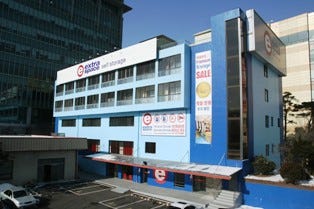 Self-storage is still a very new industry in Singapore, Korea and Malaysia. But still, with a population that is increasingly sophisticated, well-travelled and well-paid, living in homes that are limited in space, we see this as a growth area, especially when you compare this to some other cities where self-storage is more established.
Self-storage is still a very new industry in Singapore, Korea and Malaysia. But still, with a population that is increasingly sophisticated, well-travelled and well-paid, living in homes that are limited in space, we see this as a growth area, especially when you compare this to some other cities where self-storage is more established.
Let me give you an example. Sydney, which has about the same population size of Singapore, has about 120 self-storage facilities. Even if we count the entire industry in Singapore, we only have about 34 self-storage facilities. So, there is definitely room to grow. Consumers are recognizing storage isn't about putting things away and forgetting about them. It's about creating additional space in your homes so that you can make room for your family, your lifestyle and your hobbies.
You May Also Like





